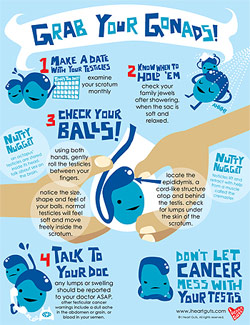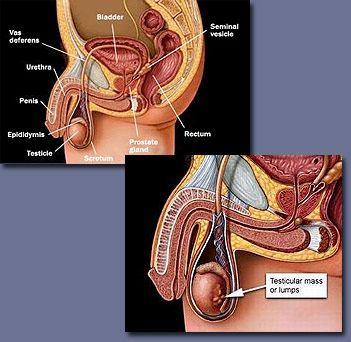Movember is now the annual world-wide campaign to encourage Men to check themselves for male cancers: Prostate Cancer and Testicular Cancer.
Late October and this website covered this campaign ahead of its launch once again this month. With even the broadcast media in this country now referring to the international Movember campaign; the wider public will become more aware of the reasons for the campaign and the issue involved. Basically, that men do not take their health as seriously as women do, and as a result, preventable deaths from male cancers are being missed.
 The CWU has previously highlighted this issue in both Annual Conference Health and Safety fringe meetings, and in letters to all its branches; in order to educate and encourage men to start to take their health a lot more seriously than they do now.
The CWU has previously highlighted this issue in both Annual Conference Health and Safety fringe meetings, and in letters to all its branches; in order to educate and encourage men to start to take their health a lot more seriously than they do now.
Movember is now an international campaign to publicise the need for men to take their health seriously, and challenge the usual 'macho' attitude that 'real men' don't need to look after their health.
Dave Joyce, CWU’s National Health, Safety & Environment Officer explains in detail about male cancers and the Movember campaign in the LTB777/12, which Unionsafety reported on in some detail:
The international campaign to promote the growth of moustaches on men throughout November each year began in Australia in 2003 as a nationwide campaign to raise awareness of male cancers.
With Prostate cancer being one of the main killers of men world-wide, the organisers of the 1st Movember campaign, wanted to highlight the appalling figures in deaths among men from this form of cancer each year.
On average men die five to six years younger than women. The suicide rate is four times higher for men than women and more than five men die prematurely each hour from potentially preventable illnesses.
 These are hard hitting facts; especially when you consider that there is no biological disadvantage that puts men at greater risk than women and according to recent research up to half of male cancer cases could be prevented by making healthy diet and lifestyle choices.
These are hard hitting facts; especially when you consider that there is no biological disadvantage that puts men at greater risk than women and according to recent research up to half of male cancer cases could be prevented by making healthy diet and lifestyle choices.
The reasons for the current state of men’s health are numerous and complex but it appears that the biggest issue is the way in which men think about their health; preventative health being something many men just don’t compute.
It is this issue that Movember’s Awareness and Education program is working hard to change. Awareness and education alters behaviour and mind-sets, it gradually breaks down barriers, removes stigmas and brings about real change.
Movember wants men to take responsibility for their health, prevent illness by leading a healthy lifestyle and understand the symptoms and signs in both themselves and others so they can appreciate when and how to seek help if needed.
In the same way as women are encouraged to check their breasts regularly by self examination, men are urged to check their testicles on a regular basis.
The most common symptom of testicular cancer is a lump or swelling in one of your testicles.
The lump or swelling can be about the size of a pea, but may be larger.
Most testicular lumps or swellings are not a sign of cancer. But they should never be ignored. You should visit your GP as soon as you notice a lump or swelling in one of your testicles.
Testicular cancer can also cause other symptoms including:

- a dull ache or sharp pain in your testicles or scrotum, which may come and go
- a feeling of heaviness in your scrotum
- a dull ache in your lower abdomen (stomach area)
- a sudden collection of fluid in your scrotum (hydrocele)
- fatigue
- a general feeling of being unwell
Prostate cancer normally causes no symptoms until the cancer has grown large enough to put pressure on the urethra. This normally results in problems associated with urination.
Symptoms can include:
- needing to urinate more frequently, often during the night
- needing to rush to the toilet
- difficulty in starting to urinate or pee (hesitancy)
- straining or taking a long time while urinating
- weak flow
- feeling that your bladder has not emptied fully
These symptoms shouldn’t be ignored but they do not mean you definitely have prostate cancer. Many men's prostates get larger as they get older due to a non-cancerous condition known as benign prostatic hyperplasia or prostate enlargement.
Symptoms that the cancer may have spread include bone and back pain, a loss of appetite, pain in the testicles, and unexplained weight loss.
Further information can be found in the full LTB777/12 downloadable here
You can also go to the "MOVEMBER" Website and get involved here
The E-Library Database contains info on Prostate Cancer and Testicular Cancer which can be found by selecting 'cancer' from the 'category' box.
Offer your opinion on this article via our Feedback form
Source: CWU / NHS / Unionsafety / AccidentalBear

